Aronia syrup with honey, pollen, ginger and lemon
Preparation time30 min
Waiting time30 min
Ready in1 hour
Tonic, energizing, strengthens the body, rich in essential amino acids, ideal for athletes
Aronia syrup with honey, pollen, ginger and lemon: tonic, energizing, strengthens the body, rich in essential amino acids, ideal for athletes but not only. It also supports the cardiovascular system, increases vigilance, helps eyesight, hepato-protective, supports the digestive system, has a strong antioxidant and anti-inflammatory effect.
Servings: 33 servings
It results in ~1 liter of syrup, i.e. ~33 portions per ~30 ml portion, or 20 portions per 50 ml portion
Ingredients
Estimated cost: 6.6 €
Materials
- - fruit/vegetable juicer with screw shaft with low revolutions 40 - 60 rpm (rotations per minute);
- - glass containers;
Preparation
 We prepare the ingredients:
We prepare the ingredients:
- wash the aronia (bunchers) in 2-3 water and then put it to whirl on flat surfaces for ~30 minutes;
- any type of bee honey can be used, here I used acacia honey;
- raw pollen is preferred, so that it dissolves more easily (it can only be kept in the freezer);
- the ginger is washed and peeled, if it is organic it is not necessary to peel it;
- wash the lemon and dry it with a towel, then divide it into 4; We start by separating the aronia berries from the bunches, after they have dried from the excess water from washing.
We start by separating the aronia berries from the bunches, after they have dried from the excess water from washing. We squeeze the aronia berries, lemon, and ginger through a juicer, preferably a juicer that does not heat up, namely a juicer with a screw shaft, which works at 40-60 rpm (rotations per minute). Always leave a few pieces of lemon and ginger for the end, they will decongest and clean the juicer.
We squeeze the aronia berries, lemon, and ginger through a juicer, preferably a juicer that does not heat up, namely a juicer with a screw shaft, which works at 40-60 rpm (rotations per minute). Always leave a few pieces of lemon and ginger for the end, they will decongest and clean the juicer.
We put the resulting juice in a large enough container. We add honey over the formed juice and mix until homogenized.
We add honey over the formed juice and mix until homogenized. Add the raw pollen and mix vigorously until it dissolves completely.
Add the raw pollen and mix vigorously until it dissolves completely. We put the formed syrup in glass containers, close them hermetically and keep / store them in the refrigerator.
We put the formed syrup in glass containers, close them hermetically and keep / store them in the refrigerator.
It is recommended to leave the syrup in the refrigerator for at least 24 hours, to allow the ingredients to interact, although it can also be consumed immediately after preparation.
Administration
→ 30-50 ml (~1-2 tablespoons) of aronia syrup is recommended, 3 times a day, preferably 30 minutes before meals.
→ It can be consumed as such or diluted in ~200 ml of water. It can also be added to various drinks.
→ It is recommended not to exceed 150 ml of aronia syrup per day.
→ It can be consumed for long periods of time, but after 1-2 months, a 2-week break is recommended.
→ It can be consumed as such or diluted in ~200 ml of water. It can also be added to various drinks.
→ It is recommended not to exceed 150 ml of aronia syrup per day.
→ It can be consumed for long periods of time, but after 1-2 months, a 2-week break is recommended.
Observations
⚠ In addition to the benefits, ginger also gives this syrup a special taste, which cuts the feeling of nausea, especially for those who have problems with the strong taste of aronia fruits.
⚠ Pollen will bring this syrup an increase in nutrients, in particular it will supplement this syrup with essential amino acids.
Storage/Validity:
→ It is recommended to store in small (glass) bottles, necessarily cold, in the refrigerator.
→ It is recommended to fill the bottles to the top, with as little air as possible.
→ If not opened, a bottle of this aronia syrup can be kept in the refrigerator for up to 6 months.
→ After opening a bottle, it is recommended to consume it within the shortest time possible, maximum 1-2 months.
→ We recommend avoiding as much as possible exposure of the juice to air, light and heat, that is, immediately after consuming the recommended dose, close the bottle tightly and put it back in the refrigerator. Thus you avoid oxidation and preserve nutrients for a longer period of time.
⚠ Pollen will bring this syrup an increase in nutrients, in particular it will supplement this syrup with essential amino acids.
Storage/Validity:
→ It is recommended to store in small (glass) bottles, necessarily cold, in the refrigerator.
→ It is recommended to fill the bottles to the top, with as little air as possible.
→ If not opened, a bottle of this aronia syrup can be kept in the refrigerator for up to 6 months.
→ After opening a bottle, it is recommended to consume it within the shortest time possible, maximum 1-2 months.
→ We recommend avoiding as much as possible exposure of the juice to air, light and heat, that is, immediately after consuming the recommended dose, close the bottle tightly and put it back in the refrigerator. Thus you avoid oxidation and preserve nutrients for a longer period of time.
Effects and benefits
General:
- important source of antioxidants: anthocyanins, flavonoids, phenolic acids;
- source of essential amino acids (protein source) from pollen;
- contains the highest level of anthocyanins and proanthocyanins;
- rich in vitamins: A, B, C, P, K and Q;
- rich in minerals: calcium, magnesium, potassium, iron, zinc and manganese;
- rich in carotene, lutein and catechin;
- tonic / energizing;
- the antibacterial effect;
- immuno-protective
- vitaminizing/mineralizing;
- source of fiber
- regulates the tension;
- regulates blood sugar;
- protects the stomach;
- anti-depressant;
- digestive;
- anti-diarrheal;
- detoxifying;
- anti-aging effect;
- hepato-protective;
- reduces stress;
- protects the body from intoxication;
- rich in protein;
Supports the immune system:
- strengthens the body's immunity (aronia being rich in vitamin C);
- prevents colds and flu (aronia are rich in ellagic acid and myricetin);
- prevents bacterial infections in the respiratory system;
Anti-tumor effects:
- reduces the risk of colon or breast cancer
- fight against free radicals;
- aronia inhibits the growth of cancer cells in colon cancer;
Supports the cardiovascular system:
- chokeberry helps regulate blood pressure due to its high potassium content, which has a dilating effect;
- helps prevent and even treat atherosclerosis;
- prevents coronary diseases;
- decreases the risk of myocardial infarction;
- effectively cleans the blood;
- reduces triglycerides and bad cholesterol (LDL);
Supports cognitive functions:
- helps increase neural activity;
- helps to strengthen neural connections;
- reduces oxidative stress in the brain (due to anthocyanins);
- prevents depression and anxiety, reduces stress;
- helps prevent neurodegenerative diseases (Alzheimer's, Parkinson's);
- prevents the risk of dementia;
- supports memory and improves learning processes;
Aids vision:
- supports eyesight, chokeberry being rich in carotene (lutein and zeaxanthin, flavonoid antioxidants present in chokeberry);
- prevents eye degeneration;
- reduces oxidative stress in the eyes;
- reduces inflammation in the eyes;
- prevents the development of cataracts;
- improves vision at night (anthocyanins improve micro-circulation and reduce capillary fragility);
Supports the digestive system:
- helps digestion, being rich in fiber;
- fights constipation;
- fights diarrhea;
- protects the intestines from bacteria;
- detoxifies the body;
- helps to lose weight (favors fat burning and increasing muscle mass);
Other:
- prevents the sudden increase in blood sugar and keeps the sugar level under control, thanks to dietary fibers (anthocyanins);
- helps to combat fatigue;
- prevents and fights allergies;
- contributes to the proper functioning of the liver;
- offers extra protection against UV radiation;
- recommended for those with rheumatism and joint pain (cyanidin and anthocyanin);
- prevents and treats urinary infections, thanks to quinic acid;
- reduces the development of E. coli bacteria and Staphylococcus aureus;
- can easily combat nausea thanks to lemon and ginger;
Side effects
- allergies in those allergic to any of the ingredients used;
Contraindications
- for pregnant or breastfeeding women to consume only with the consent of the doctor;
- it is contraindicated for those with kidney stone problems, as aronia contains oxalic acid;
- for those with diabetes, a doctor's recommendation is necessary, and if you use honey, it should be acacia;
- it is not indicated for people with gastric/duodenal ulcer;
- attention for those with a high degree of coagulation, especially if they are going to have surgical interventions;
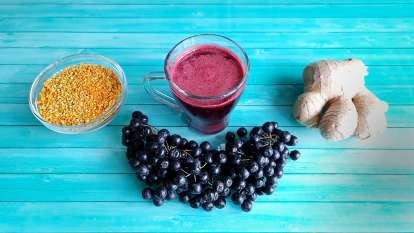
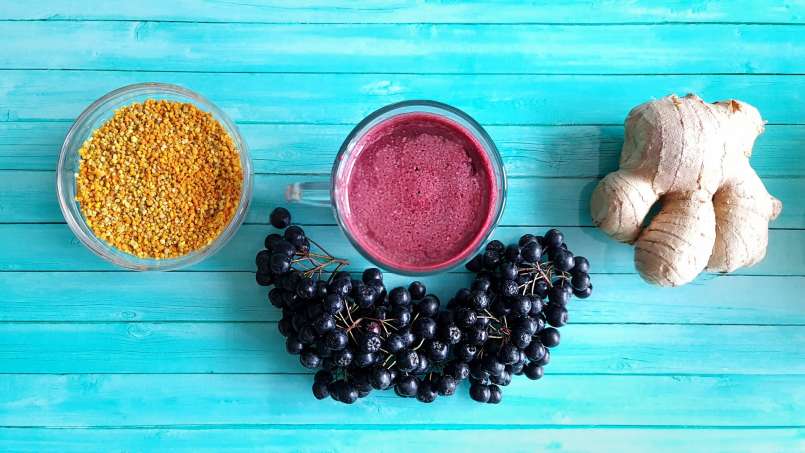
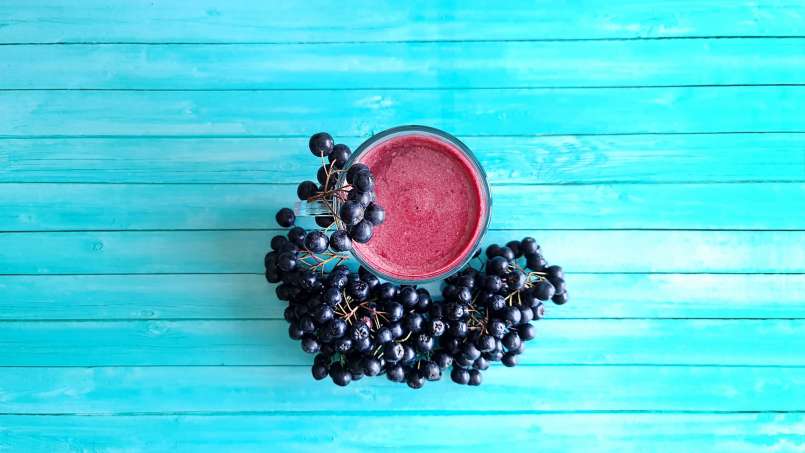
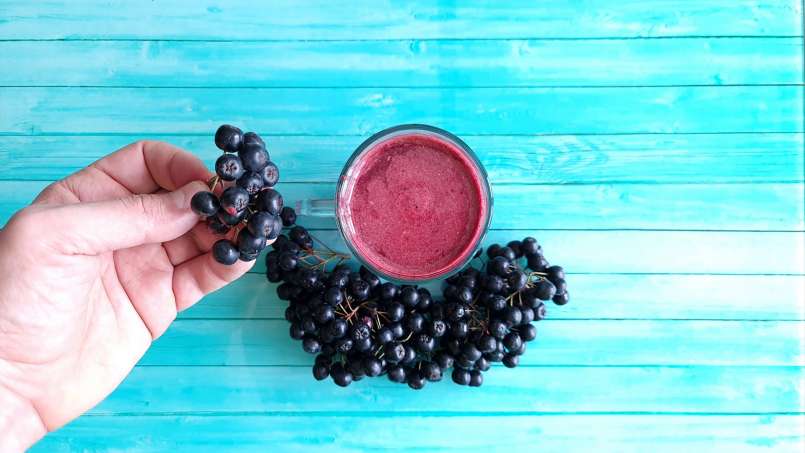
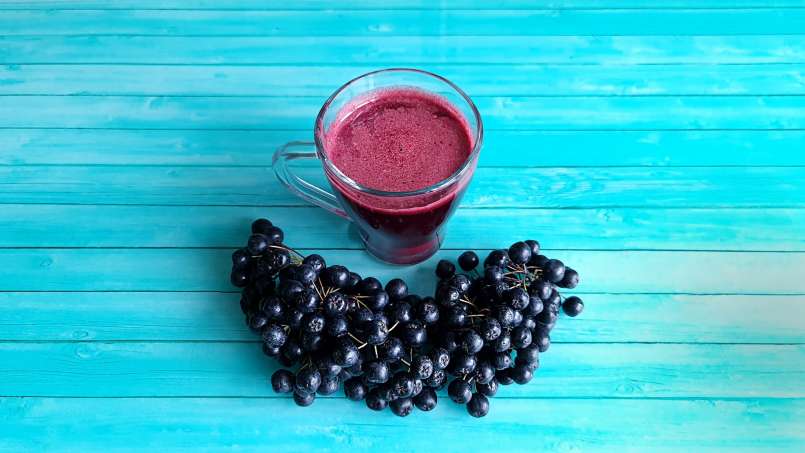
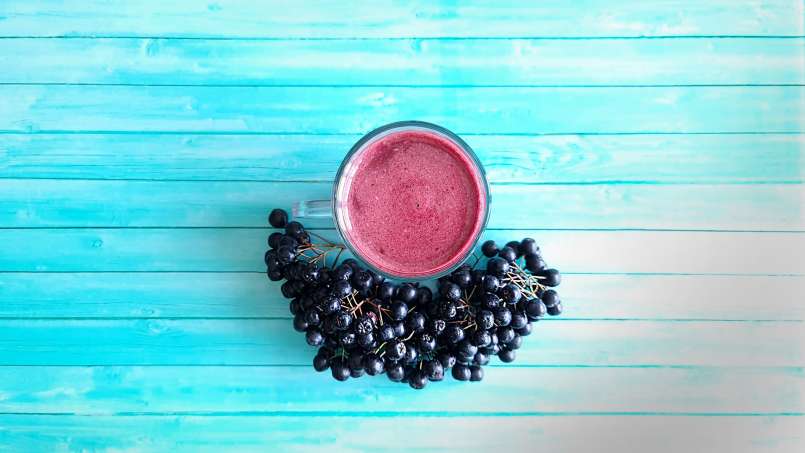
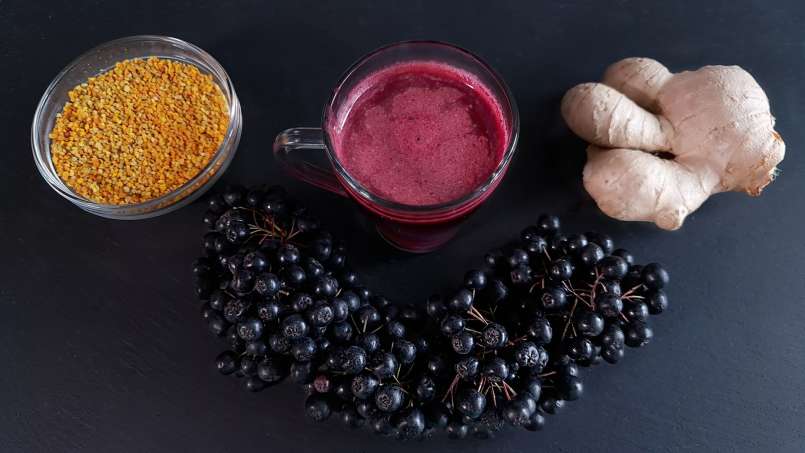
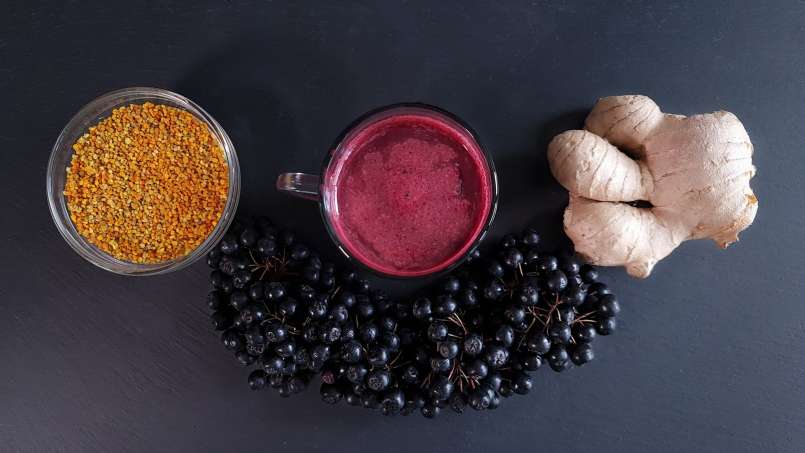
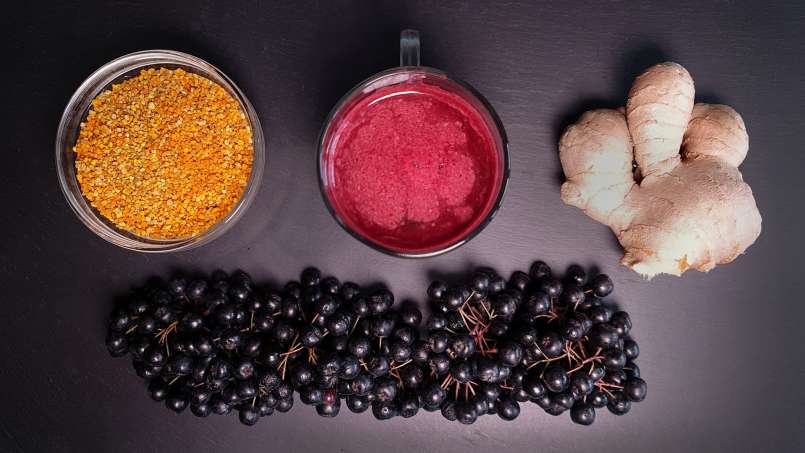
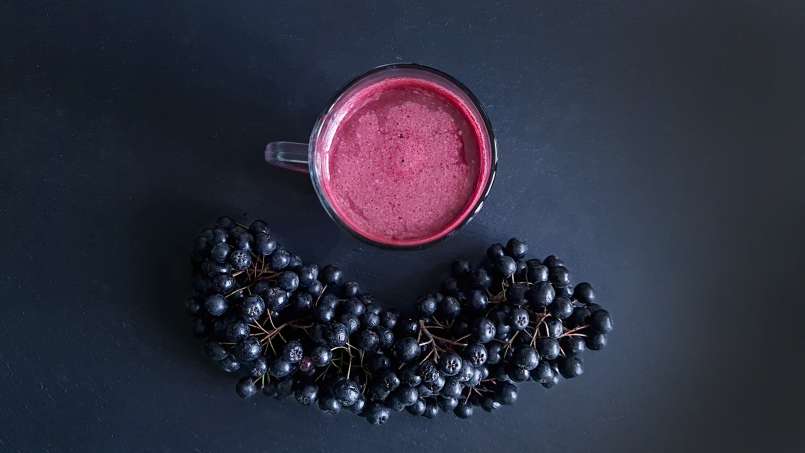
Comments